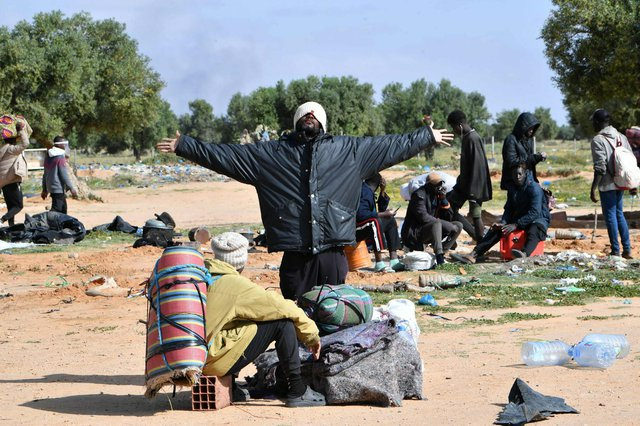Tunisia has announced that its voluntary migrant repatriation strategy is yielding strong results, with officials reporting no irregular migrant entries in the first three weeks of 2025. This marks a major shift compared to the same period in 2024, when over 3,000 unauthorized entries were recorded.
The claim was made by Houssemeddine Jebabli, spokesperson for Tunisia’s National Guard, in a recent broadcast on state television. He said the country’s stepped-up efforts had not only reduced irregular arrivals but also increased the number of migrants intercepted before they could attempt sea crossings to Europe.
Jebabli also highlighted the government’s active presence in the Sfax governorate, especially in the El Amra region, where many migrants without legal documentation have been living in makeshift camps. These camps have become staging areas for those hoping to cross the Mediterranean, but officials have called them a risk to public health and safety.
The government’s current strategy in the region includes deploying security forces to El Ketetna to ensure the protection of civil protection units and Red Crescent workers. Health ministry officials have reportedly classified the camps as a public hazard, prompting further investigations by the National Guard.
Migrants in these areas are now being offered an alternative: voluntary repatriation to their home countries. Jebabli confirmed that Tunisia’s national security council adopted a formal strategy to support this approach and that President Kaïs Saïed reached out to NGOs and allied countries to arrange air transport for those choosing to return.
While the focus is on voluntary returns, Jebabli noted that deportations still occurred, particularly for individuals accused of violence or criminal behavior against other migrants or Tunisian citizens. In total, Tunisia repatriated over 7,500 migrants in 2024, he stated.
These developments come as Tunisia continues to face pressure from European nations, especially Italy, to help manage migration flows across the Mediterranean. The country’s government is walking a fine line between humanitarian assistance and maintaining internal security, particularly in areas overwhelmed by large numbers of migrants in transit.

